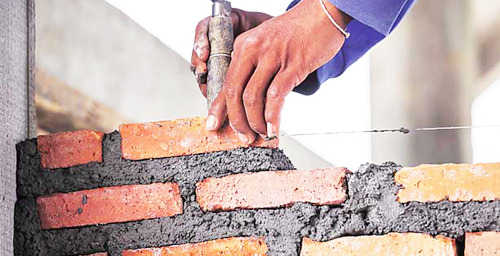Goods and services tax (GST) has become a reality from July 1.
India is notorious for its complex tax system. For new businesses and startups, it becomes impossible to navigate through various direct and indirect taxes. Constant changes to taxes like Service Tax are making things even worst. But now, the things are set to change with new Goods and service tax – commonly known as GST.
In this post, you will understand what is GST, how it is different from other taxes, GST applicability, GST rates, its impact on the business and latest updates about GST bill. There are expectations that the tax reform will boost the Indian economy and huge shift will be seen from unorganized to organized sector.
However, some near-term hiccups can be seen for the next one or two-quarters. According to market experts, job creation will remain a concern as the unorganized sector shifts towards the organized sector. If you are a business, it is nearly certain you deposit some tax other than income tax. It could be in the form of service tax, excise duty, VAT or some version of customs duty. These taxes are called indirect taxes. Nearly all of these taxes will now be replaced with GST.
Table of Contents
Who should prepare for GST?
Those with turnover less than Rs 20 lakh (Rs 10 lakh for North East states) do not have to mandatorily register for GST. This limit, though, is not to be considered if the business is involved in making inter-state transactions. GST registration is mandatory for them.
If you have a website from where the supply of goods or services takes place, GST registration will be mandatory for you. GST also applies to an ‘input service distributor’. Input service distributor means a head office that receives billing for services received at branches and later on it sends apportions to branches.
Impact Analysis of GST on Small & Medium Enterprises
Let us have a look a few things that will be influenced by the GST.
What will be expensive:
Eating Out

Dining out will be expensive. Here’s an example explaining how –
In a restaurant, say a consumer spends Rs.100. Currently, you pay an average of 18.5% as service tax and VAT. So apart from the service charge, you usually shell out Rs 118.5.
Now, according to GST, it’s expected that the rates can be fixed at 18 to 20%. Accordingly, at 20% approximate tax rate, your bill will be 120 rupees.
Phone Bills

Suppose on a bill of Rs 100 on which consumer pays service tax of 15 % and finally pays Rs 115 as total amount to his service provider.
After GST, if the tax rate is fixed at 18 % then he will have to bear the brunt of Rs 118.
After implementation of GST, internet packs and call rates are likely to get higher.
Jewellery

The yellow metal to is all set to become expensive. At this point of time, only 2% tax is paid by the buyers, but sadly though, according to GST at least 6 % is expected to be paid by buyers. This will impact jewelry sales.
Online Shopping

Don’t be surprised if E-commerce companies abruptly stop giving discounts & freebies that they offer. For every purchase from its sellers, the e-commerce companies will pay a fixed TDS.
Consequently, the cost, for example, commerce will increase. This will affect sales as customers will be expected to shell out more money for the same goods.
Banking & Insurance

Services offered by banks are taxed at 14.5% currently which under GST regime are likely to become costlier at the standard rate of 17-18%. Several services by the bank to a customer are centralized or localized. These complexities add to compliance costs, making it expensive for consumers.
Travelling

Air tickets to will become expensive post the implementation of the GST.Service tax on airline fares ranges between 6%-9%. GST will pump the taxes up further to 15%-17%.
Traveling in business class will become expensive as after the rollout of GST, the tax rate will increase from 9 per cent to 12 per cent. However, GST on economy class is set at 5 percent, lower than the previous 6 percent. Aviation Turbine Fuel has kept outside the GST and the indirect tax structure will continue. As a result, aviation companies will now face two sets of taxes, i. e. GST and indirect tax.
Tax input credit under the GST is only available on input services for economy class travel.
Lower tax rate on economy travel is positive for companies like InterGlobe Aviation, Jet Airways, and SpiceJet.
Pharma and healthcare

Pharmaceutical products will see 12 per cent GST as against an earlier rate of 10 per cent.
Angel Broking believes companies will be able to pass on this full impact to the patients.
The healthcare sector will remain exempt from the GST, however, the inputs by the healthcare sector will be taxed at 18 percent leading to rising in the operating costs.
Companies like Dr. Lal Pathlabs will benefit.
What will be cheaper:
Buying a car

The luxury of a car will now seem reachable for the common man. Buying a car will be hassle free in different states with same prices everywhere. So a Rs.5 lakh car with the excise duty of 12.5 % and with VAT roughly totals to Rs 6.25 lakh. Now under the GST, it is expected to get lower up till Rs 35,000. If the rate is fixed at 18%, the price will now be Rs 5.9 lakhs. Automobile industry looks upwards.
Televisions

Currently, a buyer shells out Rs 20,000 for a basic LED TV plus 24.5 % tax making the total cost rise to Rs 24,900. As GST will be around 18 to 20 %, the buyer will now approximately pay Rs 23,600.
Movie Tickets

Entertainment Taxes are likely to reduce by 2-4%. Multiplex chains will increase revenues as the current high rate of entertainment tax will be uniform in all parts of the country. Lower the ticket price, higher the ticket sales. Even film producers will benefit from this advancement.
Processed Foods

Companies manufacturing processed food pay various taxes summing up to 24%-25%. With GST, it’ll sum up to 17%-19%. Such great savings from the taxes may issue a decrease in prices of products, making it cheaper for end consumers.
Cement

Tax for cement is 25%. With GST it will become 18%-20%. With logistics cost also decreasing, cement depots will also decrease. The overall cost will also decrease.
If implemented well, GST can help boost India’s economy and help make the process of levying indirect taxes more streamlined.





